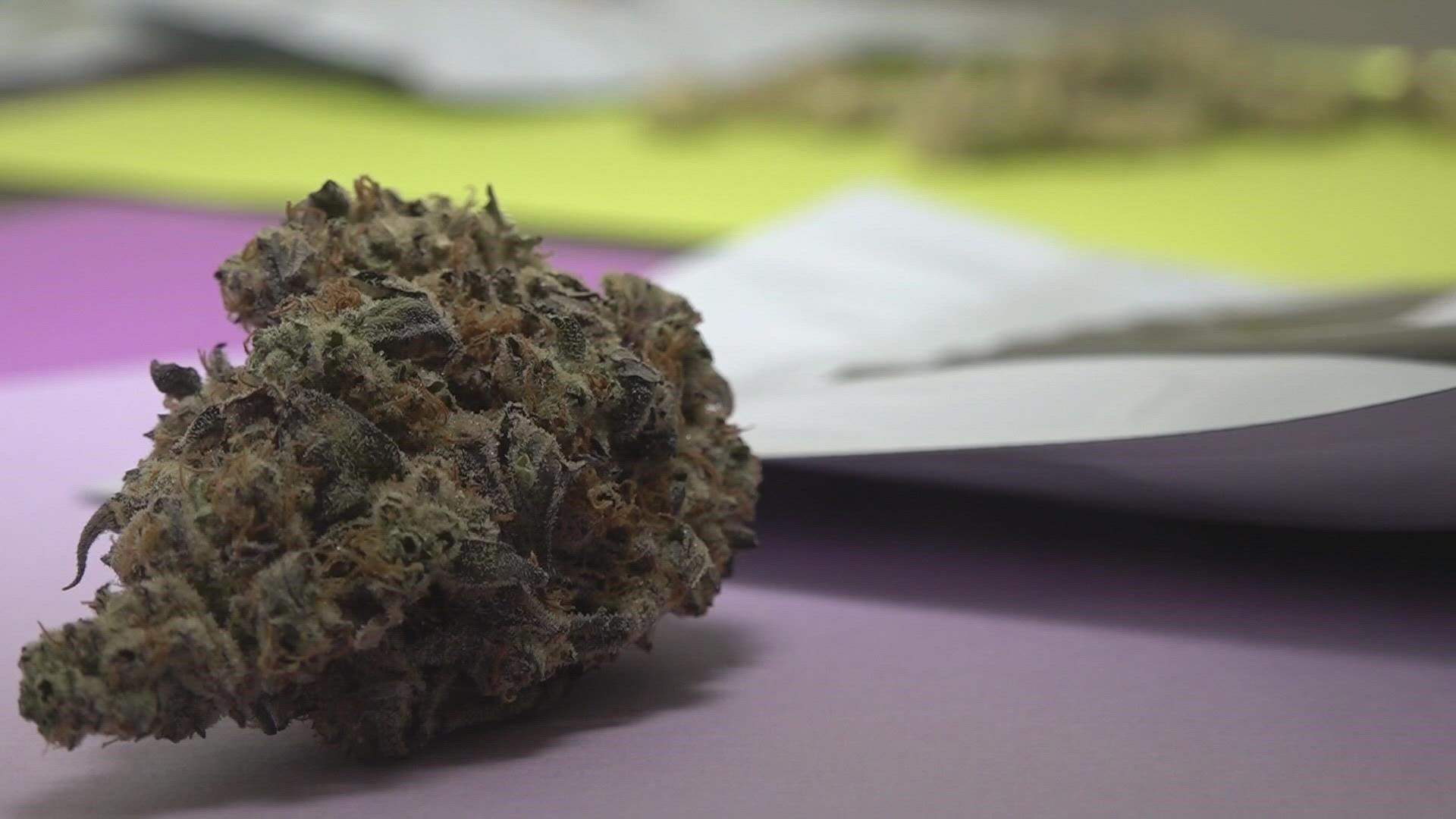The Recovery Power of Medical Cannabis: a Deep Dive Into Its Prospective to Treat Different Conditions
In recent years, the conversation around the therapeutic capacity of clinical cannabis has actually acquired substantial traction within the clinical community. The advancing landscape of clinical marijuana provides a complex tapestry of potential advantages that necessitate a closer evaluation, shedding light on a realm of therapy possibilities that continue to intrigue professionals and individuals alike.
Therapeutic Benefits of Medical Marijuana
In the world of modern-day medication, the restorative benefits of clinical marijuana have actually arised as a promising method for dealing with different health conditions. The energetic compounds in cannabis, called cannabinoids, interact with the body's endocannabinoid system to produce a range of results that can be useful for people. Among one of the most popular cannabinoids is cannabidiol (CBD), which has actually obtained focus for its prospective anti-inflammatory, analgesic, and anxiolytic properties without the psychoactive results generally related to tetrahydrocannabinol (THC)
Clinical cannabis has actually shown certain guarantee in easing persistent discomfort, spasticity related to multiple sclerosis, queasiness and throwing up in radiation treatment people, and symptoms of certain neurological disorders like epilepsy. Study is likewise exploring its capacity in managing psychological wellness conditions such as stress and anxiety, anxiety, and post-traumatic stress and anxiety condition. In addition, medical marijuana is being examined for its anti-inflammatory properties, which might have effects for problems like joint inflammation and inflammatory digestive tract illness.
Easing Persistent Pain With Marijuana
Having shown effectiveness in resolving a spectrum of health conditions, medical cannabis notably beams in its ability to supply relief for individuals coming to grips with chronic discomfort. Persistent pain, characterized by its perseverance and debilitating nature, impacts millions worldwide, commonly significantly influencing lifestyle. Typical discomfort monitoring methods, such as opioids, might come with damaging adverse effects and the danger of dependency, driving several clients to seek alternative options.
Clinical cannabis has become an appealing option for persistent pain administration as a result of its analgesic residential or commercial properties. The cannabinoids present in marijuana, particularly tetrahydrocannabinol (THC) and cannabidiol (CBD), communicate with the body's endocannabinoid system to assist regulate pain assumption and swelling. Research studies have actually shown that medical cannabis can properly relieve persistent discomfort linked with conditions like joint inflammation, fibromyalgia, numerous sclerosis, and neuropathy. Marijuana offers a more all-natural and possibly safer choice to traditional pain medicines for lasting use (Medical Cannabis Clinic).

Handling Anxiousness and Tension
Medical marijuana provides a sensible alternative for people looking for relief from stress and anxiety and anxiety due to its potential soothing results on the body and mind. By possibly impacting the release of neurotransmitters and regulating tension reaction, clinical cannabis reveals pledge in providing an all-natural choice for taking care of these problems.
In addition, unlike standard anti-anxiety medications that might come with undesirable negative effects or danger of reliance, medical marijuana provides a possibly much safer option for people wanting to alleviate stress and anxiety and stress. It is essential for individuals thinking about medical cannabis for these functions to seek advice from with a health care copyright knowledgeable about medical cannabis to make sure secure and effective use.
Marijuana for Neurological Problems
Study has actually revealed promising potential in making use of marijuana for taking care of neurological conditions. Neurological disorders encompass a series of conditions influencing the mind, spine cable, and nerves, such as epilepsy, several sclerosis, Parkinson's disease, and Alzheimer's condition. Cannabis, with its energetic compounds like THC and CBD, has shown neuroprotective, anti-inflammatory, and antioxidant buildings that might profit individuals with these problems.

While even more professional trials are required to fully comprehend the efficiency and safety of marijuana for neurological problems, initial findings are motivating and warrant further investigation right into the therapeutic capacity of this plant for boosting the lives of those affected by such conditions. - Medical Cannabis Clinic
Potential of Cannabis in Cancer Therapy
The increasing horizon of medical cannabis applications includes the possibility of leveraging its residential properties in cancer cells therapy, offering a new opportunity of exploration in taking advantage of the healing benefits of this plant for resolving intricate health difficulties. Marijuana reveals promise in cancer treatment because of its prospective to ease signs and symptoms connected to the condition and island family clinic its therapy, such as pain, queasiness, and loss of appetite. Additionally, cannabinoids, the active substances in marijuana, have demonstrated anti-tumor effects in preclinical researches, revealing their capacity in preventing the growth of cancer cells.
Furthermore, cannabis might help in managing the adverse effects of standard cancer cells therapies like chemotherapy, possibly enhancing clients' quality of life throughout treatment. While more study is needed to fully recognize the systems behind cannabis's possible anti-cancer residential or commercial properties and its efficacy in various kinds of cancers, the initial searchings for suggest that clinical cannabis could play a beneficial function in the future of cancer cells therapy. As the exploration of marijuana in oncology continues, it holds guarantee as a complementary strategy to conventional cancer treatments, offering individuals a well-tolerated and possibly efficient option in their therapy programs.
Conclusion
To conclude, medical marijuana has shown promising possibility in dealing with a range of conditions, including persistent pain, anxiety, tension, neurological problems, and cancer. Its healing benefits have actually been significantly acknowledged by the clinical community, with continuous research highlighting its efficiency in managing these problems. As more researches are conducted, clinical cannabis might come to be a useful therapy option for individuals dealing with these incapacitating disorders.
In recent years, the conversation around the restorative potential of medical marijuana has actually gained considerable grip within the clinical his explanation area. The evolving landscape of medical cannabis provides an intricate tapestry of possible advantages that call for a closer evaluation, dropping light on a realm of treatment opportunities that proceed to intrigue professionals and clients alike.
